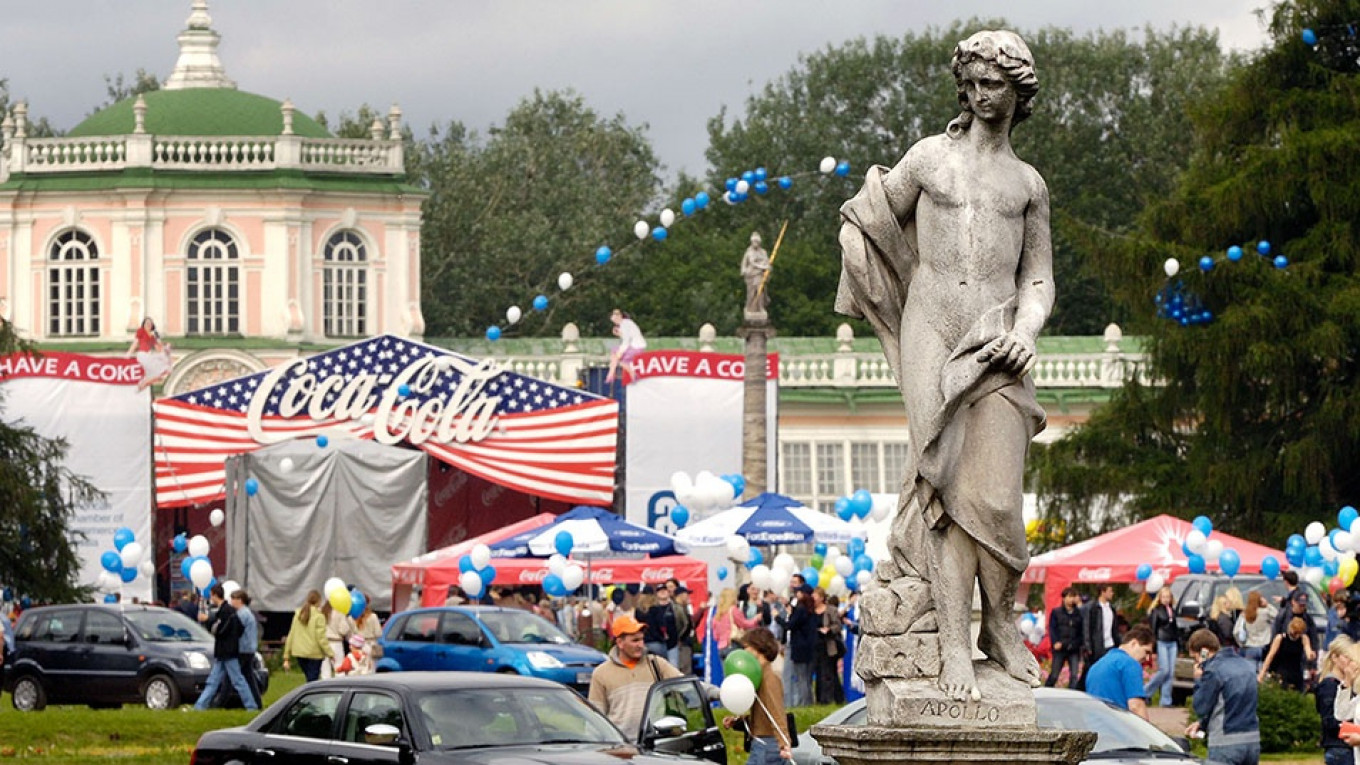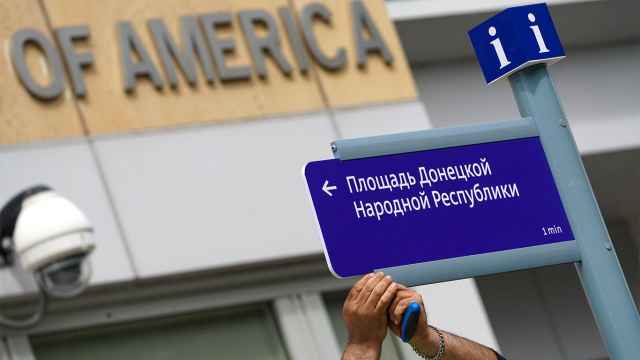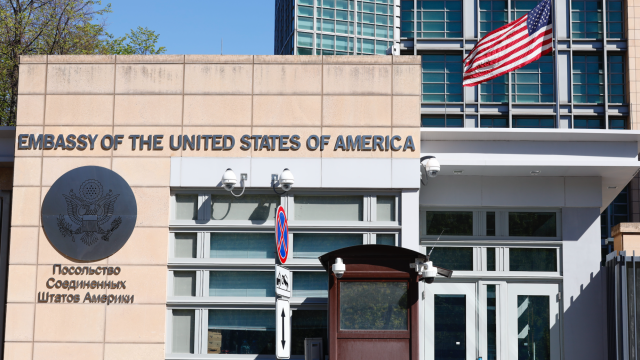Happy Independence Americans, the few of you left in Moscow.
Try to remember that things weren’t always this bad – in fact, they used to be pretty good. And maybe they’re not as bad now as they seem, though they really are pretty bad on some levels.
But let us step back and take a look at things from a day-to-day perspective, discounting political and economic issues. The Russian affinity for American stuff continues unabated. Hamburgers have supplanted sushi as the de rigueur menu item at every restaurant – French, Georgian, Italian, whatever. American-style diners are still massively popular and all over the place. A younger generation of professionals is seduced by hipsterdom and startups and Silicon Valley and disruption. Older generations still love the Americana of Elvis and Marilyn Monroe, motorcycles, classic cars, rebellion and rock and roll. American-styled clothes are everywhere. Jazz and jazz bars are everywhere. Without any exaggeration at all, I can say that some of the finest country, bluegrass, Dixie jazz and rockabilly musicians I’ve ever seen are Russian; and they play to wildly enthusiastic Moscow audiences all the time.

The fact is, as most of us Americans in Russia can attest, no matter how bad the political situation has been, the antipathy towards America has never been personal. And it certainly has never been cultural. The problem is that there just aren’t that many of us Americans left to attest anymore. And most of us figure that about 80 percent of the Americans once here have left over the last four years.
A long, strange trip
When I first arrived in Moscow in the late 1990s, the myth of America and many Russians’ fascination with America were at a fever pitch. Indeed, in my opinion at the time, things were even a bit overheated.
Per capita, there were very few restaurants in Moscow 20 years ago; and for the expat community, the social center of Moscow was the Starlite Diner at Mayakovskaya metro. Years earlier, a group of U.S. businessmen planted this authentic American diner smack in the middle of the Akvarium Garden, the first in a successful run of them. Go there any time, and you would run into people you knew. And just five minutes away was the notorious American Bar and Grill, a decidedly more seedy variation on the American theme; but just like the Starlite, it was always jampacked with Russians digging the American theme.
At the same time, there was an American aspect to Moscow that was much more fascinating, accidental and authentic. There were genuinely rough bars all over town, and I adored them. In my mind, they were as wild and unpredictable as I imagined that the American honky-tonk bars had once been decades before. One place I enjoyed going was in the basement of the Central House of Artists, called Taxman. My first time there, some kid was playing perfect Jerry Lee Lewis – and I really mean perfect – while people around me were fighting and empty beer bottles were flying. I was in heaven. This was a place that wasn’t trying to be American, but was more of a genuine and altered glance into an older and cooler America of honkey-tonks, attitude, fighting, great music and whatever happens next. It was in places like this that I began to appreciate one of the genuine connections between Russian and American cultures.
As Russia left its Wild West of the 1990s and Moscow saw the rise of a rapidly growing, more refined middle class, the Taxman was shutdown and replaced with something entirely more respectable — a place that no doubt sold sushi. Most of the dives that I loved disappeared. But the Starlite and the American Bar and Grill were still going strong and packed.
As Russian wealth grew, I noticed a new trend. To my delight, pick-up trucks began appearing in Moscow. Better still, many were jacked-up on huge wheels. Some were outrageously painted with all kinds of wild drawings. You would never find anything in such poor taste … except everywhere in America.
Over the decades, I’ve come to appreciate that the two countries genuinely share many attributes and predilections — and a wonderful lack of refinement. I’ve seen what I thought was an unhealthy preoccupation with American culture balance itself out, become more equal and appreciative and then become more Russified. Take the hamburger, for example. Russian restaurants are now adding their own unique flare to hamburger recipes and making them their own. American bars and diners are still around, but Russian pubs and craft beer places are evolving from them, finding their own voice and building on those legacies. Thankfully, the passion for over-the-top trucks grows more rampant. We may not be brothers and sisters, but we’re certainly cousins.
So while America-Russia relations remain in the ditch, for however long, the Russian and American affinity, to my mind, is still going strong.
Guy Archer was the communications director at the American Chamber of Commerce in Russia in 2007-2014.The views expressed in opinion pieces do not necessarily reflect the position of The Moscow Times.
A Message from The Moscow Times:
Dear readers,
We are facing unprecedented challenges. Russia's Prosecutor General's Office has designated The Moscow Times as an "undesirable" organization, criminalizing our work and putting our staff at risk of prosecution. This follows our earlier unjust labeling as a "foreign agent."
These actions are direct attempts to silence independent journalism in Russia. The authorities claim our work "discredits the decisions of the Russian leadership." We see things differently: we strive to provide accurate, unbiased reporting on Russia.
We, the journalists of The Moscow Times, refuse to be silenced. But to continue our work, we need your help.
Your support, no matter how small, makes a world of difference. If you can, please support us monthly starting from just $2. It's quick to set up, and every contribution makes a significant impact.
By supporting The Moscow Times, you're defending open, independent journalism in the face of repression. Thank you for standing with us.
Remind me later.







